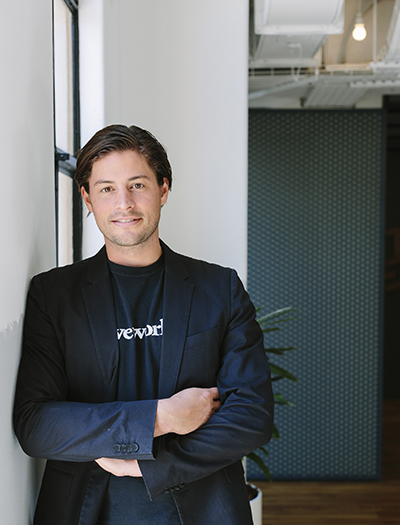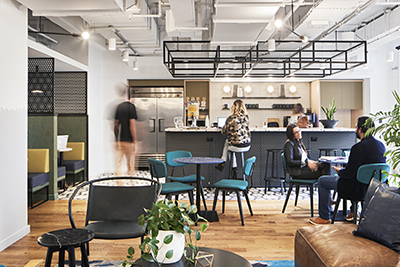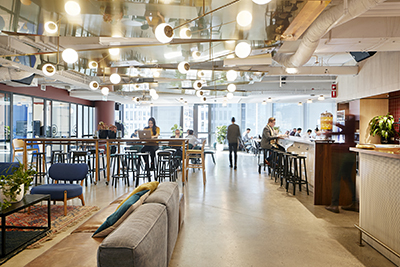How to create thriving work communities that meet individual needs
By Balder Tol >>
AS LEADERSHIP guru Simon Sinek once said, “When people are financially invested, they want a return – when people are emotionally invested, they want to contribute”.
This statement has never rung truer for modern-day employees who want to do the type of work that contributes to their companies in a meaningful way. A salary and stability are not enough to make workers feel engaged in the 2019 workplace.
In a study by Deloitte last year, a sample of millennial employees were asked what would make them happier in the workplace. About 81 percent cited having meaning in their work, 72 percent said feeling valued, and 64 percent wanted a good company culture.
Provision of these needs is crucial now, more than ever, for the Australian modern workforce.
Community is one of the best ways to meet these desires. If strong social bonds are formed, workers are often happier and get more value from their day to day. Aspects such as building design, social events and community spaces can have a profound effect on this.
At WeWork, our primary focus is to provide a community to all of our members. While we’re known for creating dynamic places for people to work, our true success comes from combining multiple factors that encourage interaction, incorporating community areas, social events and networking.
We believe that companies of all sizes can transform their culture and gain the best results by taking a similar, multi-faceted approach.
HOME AWAY FROM HOME
Effective workplace design is central to community creation. Given we spend as much time at the office as we do at home, physical environments need to inspire to bring out the best in people.
The modern worker has come to define themselves by their work, and the aesthetic feel of their workspace needs to match their aspirations.
WeWork addresses this with modern furniture and artwork that give members a space where they actively choose to collaborate and socialise.
That said, community does not come from design alone. At a time when people are easily engrossed in devices, additional social encouragement is needed.
Weekly gatherings such as thought-provoking talks and networking events can allow employees to look beyond their daily networks to form new connections.
According to the Australian Psychological Society, 62 percent of young adults lack companionship, meaning workplaces have an opportunity to expand social circles to encourage overall happiness.
Staff that feel part of a community are more likely to be happier and more engaged in their work overall.
Socialising aside, more interaction can also lead to new business opportunities.
More than free food, WeWork’s weekly ‘Thank God It’s Monday’ breakfasts have enabled 70 percent of members to collaborate in some way, with more than 50 percent doing business together directly.
While emphasis on collaboration is key, spaces for privacy are also needed for productivity. 
Open plan offices encourage interaction but are not the best option for work that requires focus. Soundproofed alcoves provide comfortable sanctuaries for conducting private calls and video chats, while wellness rooms allow workers to pray, meditate, or just gain some privacy.
ONE COMMUNITY FITS ALL
Despite the size and type of a business, younger workers have the same desire for community.
While freelance individuals or new start-ups are actively trying to expand their immediate network, large organisations are realising the importance of making their workforce more socially driven. Some 84 percent of those surveyed believe access to WeWork makes them more productive, too.
All kinds of companies are creating technology hubs to inspire their developers to offer innovative new solutions.
Headquartered in North Ryde, NSW, Microsoft has a large private office at WeWork in Sydney, offering their teams a central location for meetings and improving collaboration across the business and with the wider community.
As WeWork has grown, enterprise customers now make up almost 30 percent of its customer base. Large companies are discovering the value offered by modern, city-based workplaces.
Practically speaking, creating a new community and aesthetic is tough, which is why so many businesses are yet to change.
Collaborative workplaces are taking care of time-consuming basics like high quality wi-fi, cycling facilities, social staff and drinks, making a better employee experience accessible to all. 
WORK AS AN EXPERIENCE
Today’s workforce needs positive reasons to stay loyal, ranging from financial benefits to having exciting work and individual growth opportunities.
While companies will always have to lay the concrete aspects of the work itself, WeWork’s swift expansion comes from its ability to enhance the daily work experience.
By leaning on WeWork, organisations of all sizes have seen employee engagement improve through new friendships, business partnerships and an increased sense of belonging.
Balder Tol is the general manager of WeWork Australia. WeWork was founded in SoHo New York city in 2010 and today provides shared workspaces for technology startup subculture communities, and services for entrepreneurs, freelancers, startups, small businesses and large enterprises. WeWork has workspace office locations in 554 cities in 97 countries.
ends

 How to resolve AdBlock issue?
How to resolve AdBlock issue?